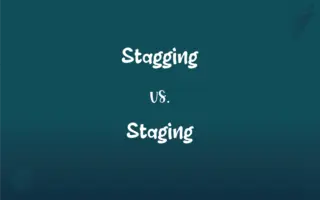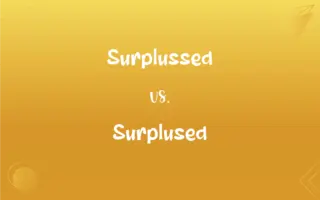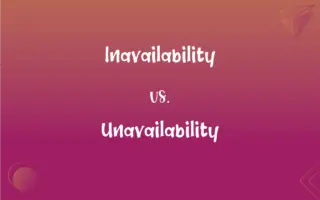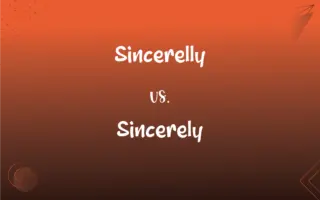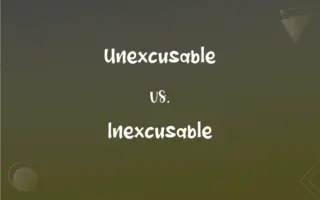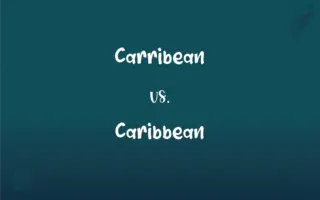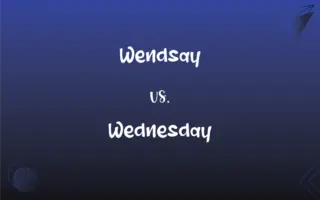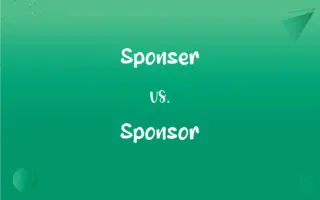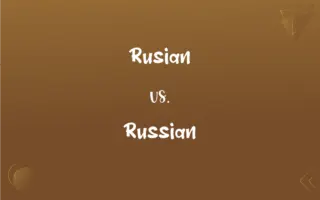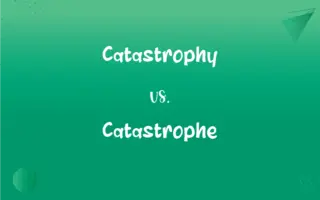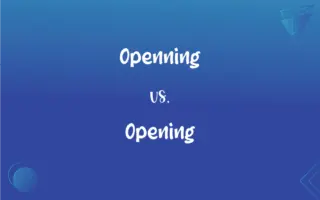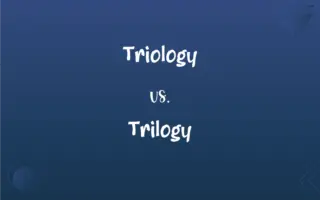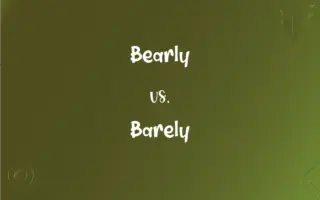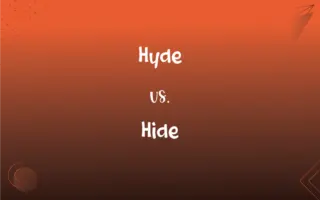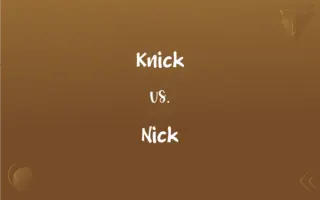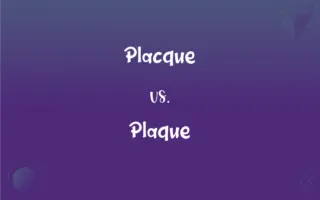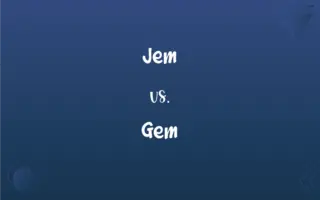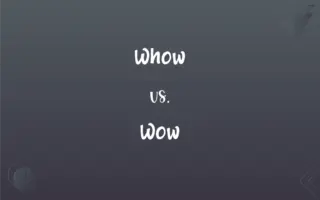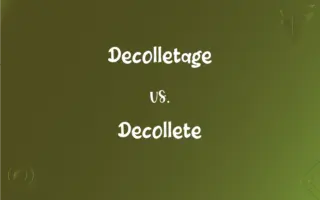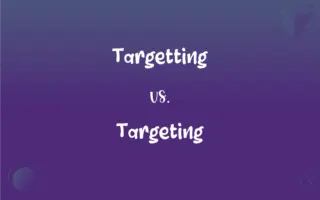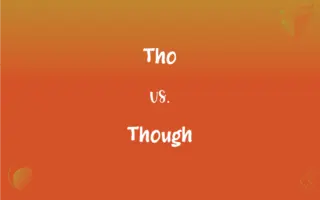Hopefull vs. Hopeful: Mastering the Correct Spelling
Edited by Aimie Carlson || By Janet White || Published on March 21, 2024
"Hopefull" is incorrect; the correct spelling is "hopeful," meaning having hope or optimism.

Which is correct: Hopefull or Hopeful
How to spell Hopeful?

Hopefull is Incorrect

Hopeful is Correct
ADVERTISEMENT
Key Differences
Remember, "hopeful" aligns with "beautiful", not "full".
Associate "hopeful" with "helpful" - both end with one 'l'.
Think "full of hope" but drop one 'l' for "hopeful".
"Hopeful" has one 'l', like "hope" plus "ful".
"Hopeful" has the same 'l' count as "hope".
ADVERTISEMENT
Correct usage of Hopeful
He looked at the sky hopefull that the rain would stop.
He looked at the sky hopeful that the rain would stop.
The team was hopefull about winning the championship.
The team was hopeful about winning the championship.
She was hopefull that she would win the contest.
She was hopeful that she would win the contest.
I am hopefull for a positive outcome.
I am hopeful for a positive outcome.
They were hopefull about finding a new house soon.
They were hopeful about finding a new house soon.
Hopeful Definitions
Hopeful can describe an attitude filled with hope and optimism.
Her hopeful outlook was contagious among her friends.
In a competition, a hopeful is a person who is considered likely to succeed or win.
The young athlete was a hopeful for the gold medal.
Someone who is hopeful has a desire or expectation for something good to happen.
He remained hopeful despite the challenges.
Hopeful means feeling or inspiring optimism about a future event.
She was hopeful about her job interview.
A hopeful situation or sign is one that suggests a positive outcome is likely.
The sunny weather was hopeful for the picnic.
Having or manifesting hope.
Inspiring hope; promising.
Hopeful Sentences
She's hopeful that she'll get the job she applied for.
They were hopeful about the success of the new project.
The hopeful look in his eyes made her smile.
The athletes are hopeful about their chances in the competition.
The weather forecast is hopeful for the weekend picnic.
The community is hopeful for positive changes with the new law.
I'm hopeful that we'll find a solution to the problem.
The farmer is hopeful for a good harvest this year.
Being hopeful keeps her motivated during tough times.
He remains hopeful despite the difficulties he's facing.
Parents are hopeful that schools will reopen soon.
He looked hopeful as he checked the lottery numbers.
I'm hopeful that we'll see each other again soon.
She gave him a hopeful smile as he left for the interview.
The team was hopeful after the coach's pep talk.
The scientist is hopeful about the new experiment.
The rescue team is hopeful about finding the missing hikers.
They were hopeful that the weather would hold for the outdoor event.
The audience was hopeful as the curtain rose.
Being hopeful is important in achieving your dreams.
The director is hopeful for the film's success.
She's hopeful about making new friends at school.
She was hopeful about recovering her lost belongings.
He's hopeful that his proposal will be accepted.
They exchanged hopeful glances when the topic was mentioned.
FAQs
Why is it called hopeful?
It's called hopeful because it describes someone or something full of hope.
What is the root word of hopeful?
The root word is "hope."
What is the verb form of hopeful?
The verb form would be "hope."
Which vowel is used before hopeful?
The vowel "e" is used in "hope" before adding "ful" to make hopeful.
What is the singular form of hopeful?
The singular form is "hopeful."
What is the plural form of hopeful?
The plural form is "hopefuls," especially when referring to people.
What is the pronunciation of hopeful?
Hopeful is pronounced as /ˈhoʊpfəl/.
Which preposition is used with hopeful?
"About" and "for" are commonly used, as in "hopeful about the future" or "hopeful for success."
Which conjunction is used with hopeful?
"And" can be used, as in "hopeful and optimistic."
Is hopeful a noun or adjective?
Hopeful is primarily an adjective, but can be a noun when referring to a person with a particular hope.
Is hopeful an adverb?
No, hopeful is not an adverb.
Which article is used with hopeful?
"The" or "a" can be used, as in "the hopeful candidate" or "a hopeful sign."
What part of speech is hopeful?
Hopeful is an adjective.
Which determiner is used with hopeful?
Determiners like "a," "the," and "this" can be used, as in "a hopeful outcome," "the hopeful one," "this hopeful sign."
Is the hopeful term a metaphor?
Hopeful can be used metaphorically to describe optimism.
How many syllables are in hopeful?
There are two syllables in "hopeful."
How do we divide hopeful into syllables?
Hopeful is divided into syllables as "hope-ful."
What is a stressed syllable in hopeful?
The first syllable "hope" is stressed in "hopeful."
What is the opposite of hopeful?
The opposite could be "pessimistic" or "hopeless."
What is the third form of hopeful?
The third form (past participle) of hope is also "hoped."
Is hopeful an abstract noun?
When used as a noun, hopeful refers to a person, so it's not abstract.
Is hopeful a vowel or consonant?
The word "hopeful" starts with the consonant 'h'.
What is the first form of hopeful?
The first (base) form related to hopeful is "hope."
What is the second form of hopeful?
The second form (past tense) of hope is "hoped."
Is hopeful a negative or positive word?
Hopeful is a positive word.
Is hopeful a countable noun?
When used as a noun, yes, hopeful can be countable (e.g., several hopefuls).
Is hopeful a collective noun?
No, hopeful is not a collective noun.
Is the word hopeful is imperative?
No, hopeful is not imperative; it describes a state or quality.
What is another term for hopeful?
Another term for hopeful could be "optimistic."
How is hopeful used in a sentence?
Hopeful is used to describe an optimistic state or quality, e.g., "They were hopeful that the weather would stay clear for the event."
About Author
Written by
Janet WhiteJanet White has been an esteemed writer and blogger for Difference Wiki. Holding a Master's degree in Science and Medical Journalism from the prestigious Boston University, she has consistently demonstrated her expertise and passion for her field. When she's not immersed in her work, Janet relishes her time exercising, delving into a good book, and cherishing moments with friends and family.
Edited by
Aimie CarlsonAimie Carlson, holding a master's degree in English literature, is a fervent English language enthusiast. She lends her writing talents to Difference Wiki, a prominent website that specializes in comparisons, offering readers insightful analyses that both captivate and inform.


